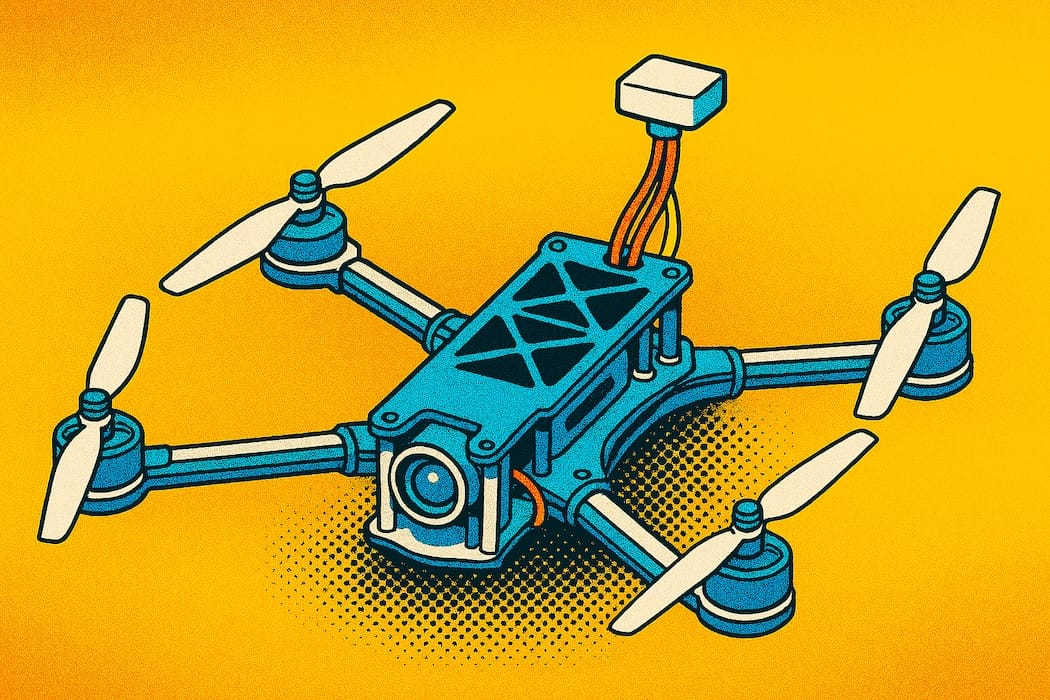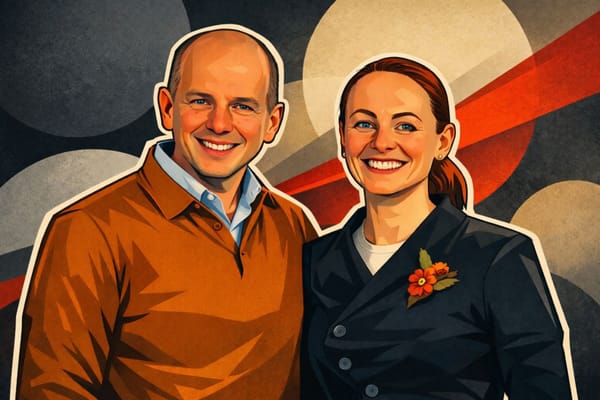The Fourth Law Raises First Round to Scale Battlefield Drone Autonomy
Kyiv-based defense robotics startup unveils battlefield-tested targeting systems and global ambitions for AI-powered drone swarms

KYIV, Ukraine — 15 July 2025
Ukrainian defense technology startup The Fourth Law has secured its first round of funding to scale production and deployment of its AI-powered autonomy systems for FPV drones, currently employed by units across Ukraine's frontlines. Investors from the U.S., EU, and Canada — including Finnish-Ukrainian firm Double Tap Investments — participated in the round. While the amount remains undisclosed, participation from Western strategic investors underscores growing global confidence in Ukraine's battlefield-born innovation economy.
The company’s core offering, the TFL-1 autonomy module, takes over control of a drone during its final 500 meters of flight — using onboard AI to guide it toward both stationary and moving targets under conditions of jamming, radio interference, and GNSS denial. Pilots in Ukraine’s 58th Motorized Infantry Brigade have used the system since March 2025. “It helps us overcome electronic warfare, jamming, acquire, and strike targets in challenging conditions,” said brigade commander Colonel Ruslan Shevchuk. “Our operational experience confirms it as a truly effective system.”
Founded in Kyiv in 2023 by Yaroslav Azhnyuk — a serial entrepreneur behind Petcube, Fuel Finance, and Ozero Design, The Fourth Law builds software-led autonomy stacks designed for mass deployment. The company’s name is a reference to Isaac Asimov’s Three Laws of Robotics, “with a hint at the discovery of an enigmatic Fourth Law.”
“Massively scalable drone autonomy is the single most important defense technology of this decade,” Azhnyuk said. “There's no one on the planet who understands this better than the Ukrainian Defense Forces. We're doing the most important work of our lives, and the funding we've raised from the investors is an invaluable catalyst to the growing defensive capabilities of the Free World.”
The company’s second major product is the Lupynis-10-TFL-1 platform, available both as a standalone drone and a full UAS system. Each Lupynis drone can strike targets up to 30 kilometers away with a 1 kg payload, or up to 3.5 kg at shorter distances. The UAS includes a fleet of 100 drones, a ground control station, and supporting infrastructure. The TFL-1 module has also been integrated into drones from over a dozen Ukrainian FPV manufacturers and is available via license. Designed to be mass manufactured at volumes of hundreds of thousands per month, the TFL-1 module increases mission success rates by two to five times, while increasing costs by only 10 to 20 percent.
The Fourth Law outlines a five-stage roadmap to scalable autonomy for FPV drones: terminal guidance; terminal guidance for bombing; target detection and engagement; GPS-denied navigation; and autonomous take-off and landing. These stages lay the groundwork for drone swarms, launch-and-recover nests, autonomous drone carriers, and aerial interceptors capable of defeating enemy drones and missiles.
According to the company, its software stack — which includes simulation tools, analytical models, computer vision systems, and autonomous fleet management — is designed to be platform-agnostic and can operate independently of satellite navigation. This architecture allows for easy adaptation across aerial, ground, and maritime systems and may eventually extend to civilian sectors such as logistics, construction, and manufacturing.
The funding announcement coincided with The Fourth Law’s decision to publicly release what Azhnyuk called potentially “the world’s first public footage of massively deployed AI-powered terminal-guidance system for FPV drones.” The company simultaneously unveiled its products and announced the completion of its investment round from backers across the U.S., EU, and Canada.
“The Fourth Law is a team that has managed to combine deep engineering, advanced autonomy, and the harsh realities of the battlefield,” said Oles Kudoba (translated from Ukrainian), co-founder of Double Tap Investments. “They haven't just built another autopilot — they've developed an adaptive system that works where there's no connection and every second counts. These are exactly the kinds of technologies that create real tactical advantage.”
As Ukraine continues to wage a war of innovation as much as attrition, The Fourth Law stands at the front of a new era of defense technology — one not imagined in labs or white papers, but forged in frontline necessity.
Support UA Tech Journal
UA Tech Journal is an independent, reader-supported publication. Your donation helps us report on Ukraine’s startup ecosystem for a global audience.





